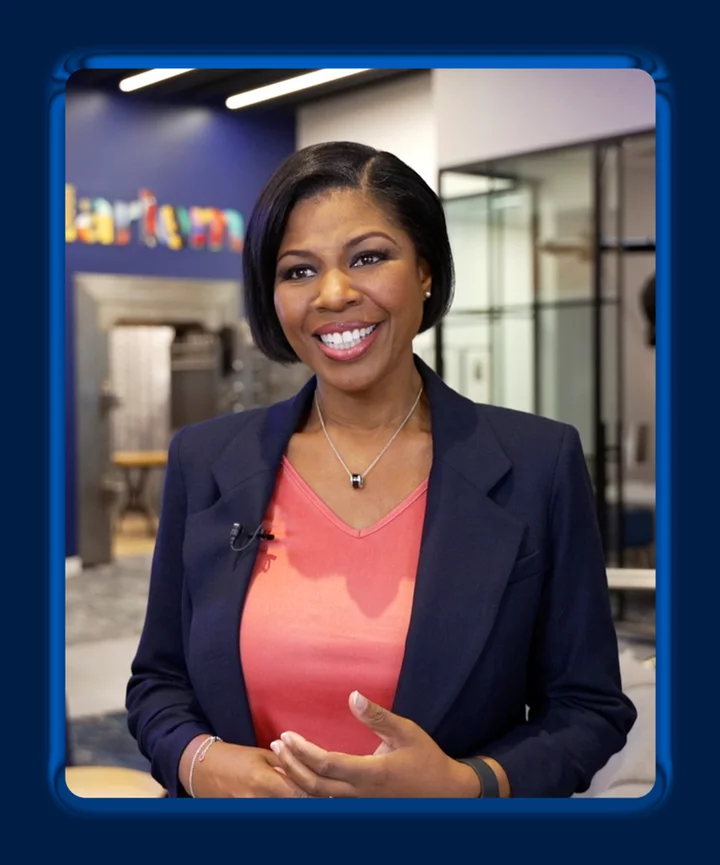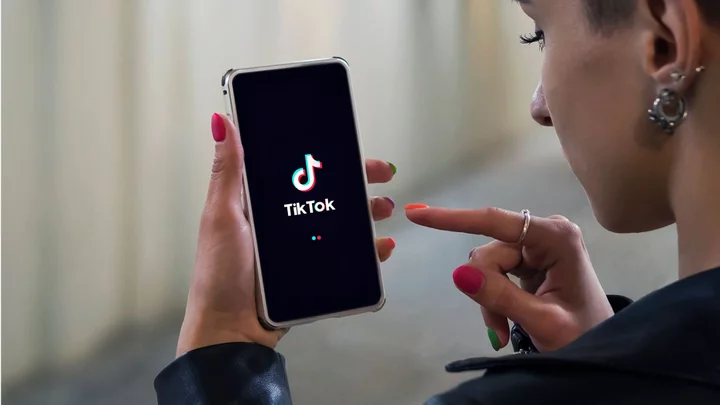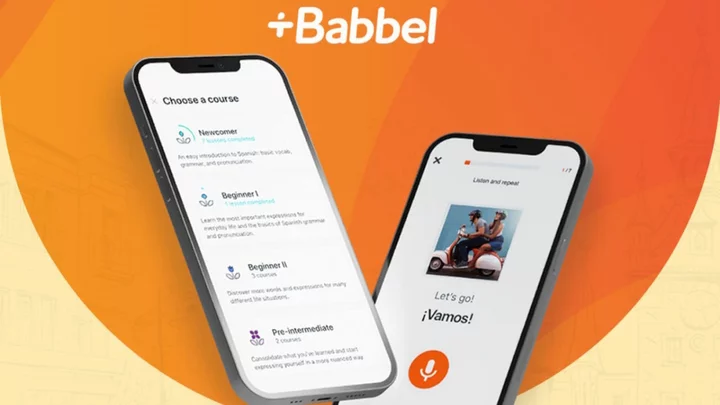At the start of the pandemic, when the world was thrown into a state of turmoil and uncertainty, Keadian Russ — like so many others — had to put her life and livelihood on pause. Her cleaning business had come to a shuddering halt, and there was no idea of when lockdown restrictions would ease. So, she pivoted. The Jamaican native, New York-based entrepreneur prided herself in formulating effective, all-natural cleaning products that her clients absolutely loved — and she decided to turn that into a new business: K-SOL.
Her first step: Turning to a Chase for Business program dedicated to helping minority entrepreneurs start, manage, and grow their businesses. Russ was set up to work with Joy Butts, vice president and senior business consultant for JPMorgan Chase, who helped her build an ecosystem, make connections, promote her products, and ultimately, expand her brand via initiatives, like the Black-Owned Challenge, which is sponsored by JPMorgan Chase. Now, Russ is in the midst of brokering deals with school districts, big-box retailers, and international partnerships.
“She’s definitely thriving and doing extremely well — and she still has a cleaning business,” effuses Butts, who has worked with thousands of businesses in the 12 years that she’s been at Chase (she averages 50 to 60 clients at a time). “These stories are so rewarding because not only do you provide education, which is extremely important, like cash flow management, business development, and brand marketing, but you also come alongside them on their journey.”
Butts is in a unique position to understand her clients — she has a business herself that gives her the opportunity to indulge in creative pursuits, one of them being a children’s book author. And she also has a degree in international business and finance from the University of Dayton that allowed her to start directly within the branch system at Chase, engaging with the community before assuming the role of a senior business consultant. The program launched in 2020 alongside the bank’s $30 Billion Racial Equity Commitment to accelerate business growth for entrepreneurs in historically underserved and underrepresented areas. Butts is one of 51 senior business consultants located throughout 21 U.S cities, and through this program, they have mentored roughly 4,000 business owners, graduated over 1,700 participants, and reached more than 179,000 attendees through community events.
That’s one of many programs at Chase designed to address inequities that many Black entrepreneurs continue to face. In fact, according to a survey conducted by Intuit Quickbooks, 57% of Black business owners were denied a bank loan at least once when they started their businesses, compared with 37% of non-Black business owners. Other Chase programs include the Special Purpose Credit Program to improve access to credit for minority small business owners, and Advancing Black Pathways to help Black communities achieve economic success by investing in careers, financial health, business growth, and community development.
As much as Butts imparts knowledge, she’s quick to point out how much she’s learned from the business owners with whom she’s had the privilege to mentor. “One of the things that’s just amazing to me is the tenacity and the grit and the fortitude that these business owners have,” she says. “You’re out there battling the elements. You don’t know necessarily how you’re going to always succeed, but these business owners are so scrappy. It’s amazing and extremely inspiring.”
Keep reading for Butts’ No. 1 advice, the barriers that Black business owners face, and the biggest mistakes an aspiring entrepreneur can make.
What is the biggest hurdle that most entrepreneurs face, specifically Black entrepreneurs?
“First would be access to capital, and this is especially true for Black entrepreneurs because they don’t necessarily have the same ecosystem that other cultures might have. Others might be able to go to their family or friends within their network for an initial cash infusion of $20,000 to $50,000, but that doesn’t happen as often within the Black community. That’s not to say there aren’t very affluent Black business owners and Black individuals, but it doesn’t happen as often. Additionally, with access to capital, it is important to understand not only how to get it, but also how to use it to gain the best return on your investment. These things we typically first learn at home, which I did coming from a family of entrepreneurs. However, not everyone has access to that kind of information early on, which can keep you from moving forward.
“The other is a lack of a strong ecosystem — the network that can help educate you, make introductions, create some strategic inroads for you, and help you develop your plan.”
How do you help your clients overcome those barriers?
“I’m one of 51 [senior business consultants] across the country and we’re continuing to expand. But what we do — and it’s all complimentary, whether you’re a Chase customer or not — is provide educational resources. We focus on access to capital, cash flow management, business development, operations management, and building ecosystems. So we’re meeting one-on-one and tailoring a curriculum specific to that individual business.
“Outside of the one-on-ones, I also facilitate workshops within the local community and partner with different organizations to bring education to the masses. Doing that helps support the individual businesses and the individuals within the community, which lifts the entire neighborhood up. We also help Black business owners by giving them access to our resources — for example, using these businesses as vendors, amplifying their stories through the media, hosting pop-up shops, and assisting them with the Minority Business Enterprise (MBE) certification.”
Why is it important that Chase has these platforms? In other words, why is the work that you’re doing so important?
“There have always been barriers and inequities. When you have the ability to make a difference, it becomes your responsibility to do something right. We have the ability and the responsibility. It’s not, ‘Let’s throw money at the issue or problem.’ We’re doing the research, and we see the disparities and understand what we need to do to tackle them, by providing resources and tools, and listening. That’s how the Special Purpose Credit Program and the program supporting minority entrepreneurs came into play, and we’re constantly making adjustments and changes to serve the people within our communities. Because if one individual, one business, one community is able to grow, it makes us all better. A rising tide raises all ships.”
Do you think that you’re able to help your customers because you have your own business?
“It definitely helps because you know some of the pitfalls and what they’ve gone through because you’ve experienced it as well. The fact that I’ve worked with so many businesses of varying levels, in all different kinds of industries, I’ve learned more about supporting businesses. It’s one thing to have your own individual experience, but being able to leverage the experiences of others lends itself to the work that I do, because I can pull from those situations.”
Do they all follow a similar pathway or are they all unique in their trajectory?
“It’s almost like the investment and approach we take toward our children — we all want them to excel and succeed, but the path to get there is definitely very different. What’s the same are the fundamentals — like, understanding how money works, cash flow, how to operate your company — because a lot of the time, business owners don’t have a finance or business background. But the way to go about it is different, and where they are in the process is also different, which is why we create a unique path for each business we work with.”
What would be the No. 1 advice that you would give to your clients who are just starting out?
“Have a plan. If you fail to plan, you plan to fail, so make sure you have a clear vision of what it is that you’re trying to accomplish and how you’re going to get there. A part of that plan is having a good ecosystem: having the right people around you, getting great advice, and working with a great banker. Another part is making sure you have access to financial resources.”
So, what are the biggest mistakes someone can make?
“Well, not having a plan, but also being tightly married to the plan. I know that sounds contradictory, but it’s important to be flexible because things are going to change. We all experienced that with Covid, so knowing when to pivot is vital. A pitfall is not being willing to change.”
Sometimes when people have a business plan or an idea, it can feel competitive — but it doesn’t have to be that way, right?
“Exactly. It takes everyone working together. Especially within the Black community, the more we come together to really support each other, the easier it will be for Black entrepreneurs to achieve their goals. There’s enough out there for everybody. You have to find the right group of people who will help and champion you.”
Brand Partner Note: JPMorgan Chase Bank, N.A. Member FDIC. For informational/educational purposes only: The views expressed here are those of the authors and do not necessarily reflect the official policy or position of (or endorsement by) JPMorgan & Chase. Views and strategies described may not be appropriate for everyone and are not intended as specific advice/recommendation for any individual. JPMorgan Chase & Co. or its affiliates and/or subsidiaries do not warrant its completeness or accuracy. You should carefully consider your needs and objectives before making any decisions and consult the appropriate professional(s). Outlooks and past performance are not guarantees of future results. The material is not intended to provide legal, tax, or financial advice or to indicate the availability or suitability of any JPMorgan Chase Bank, N.A. product or service.









